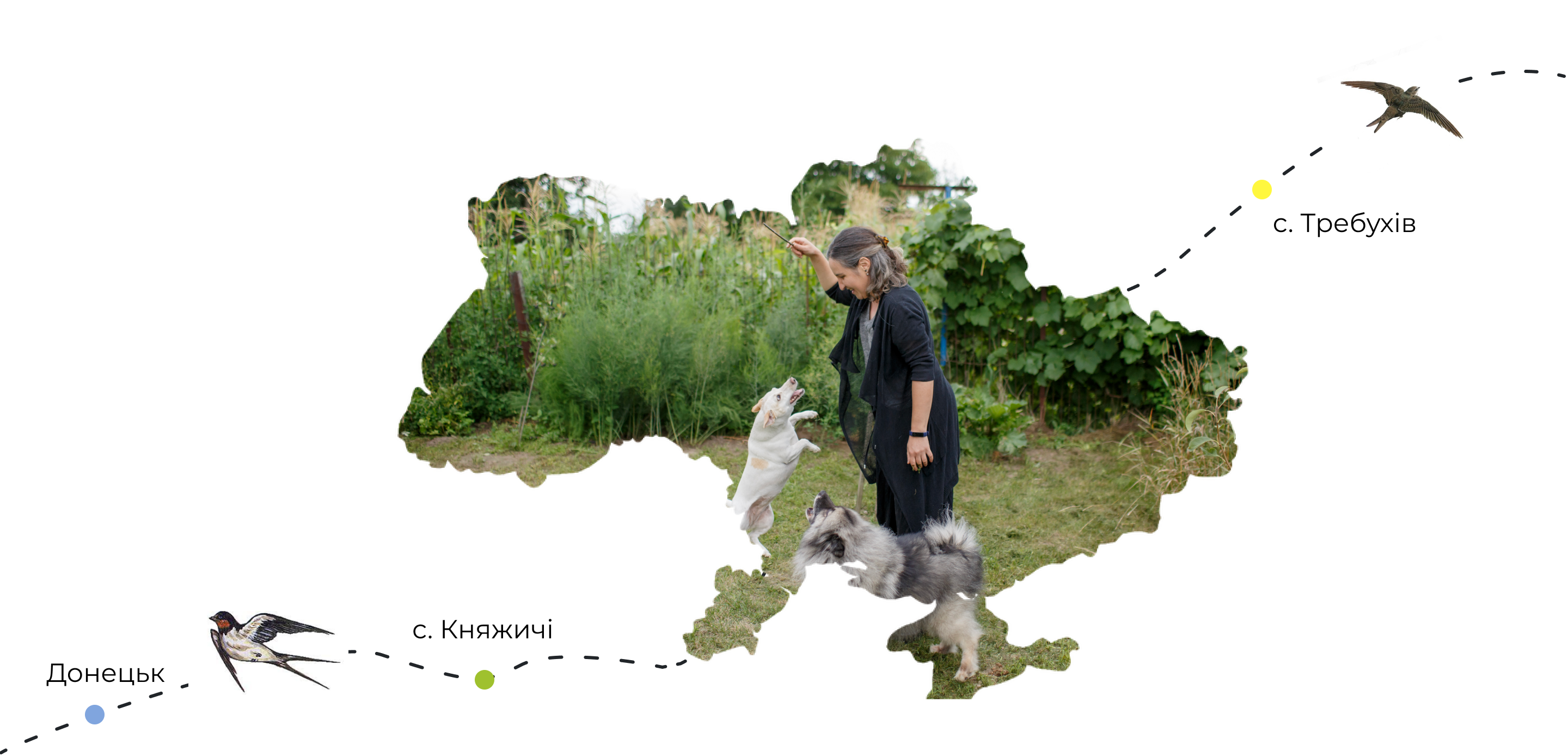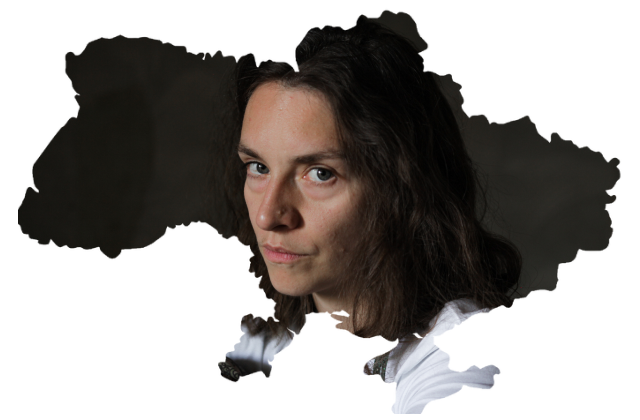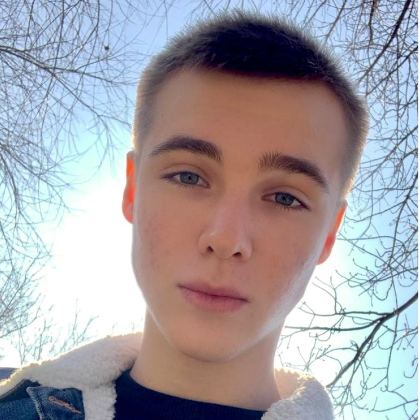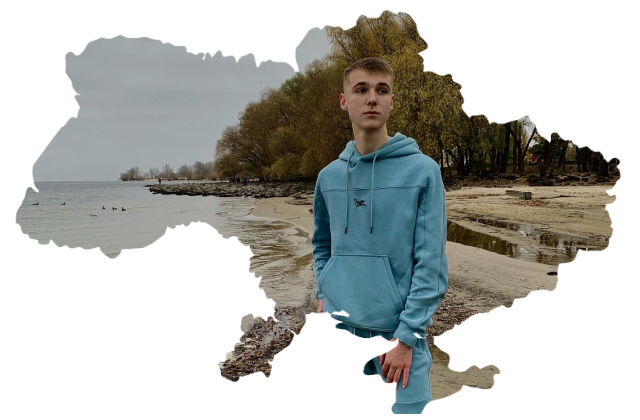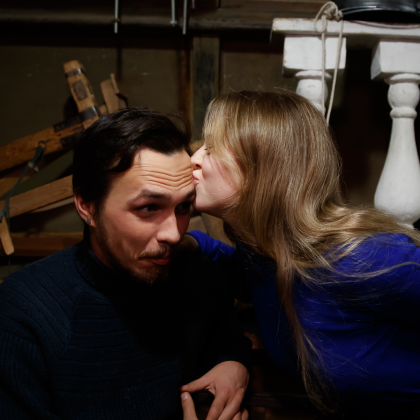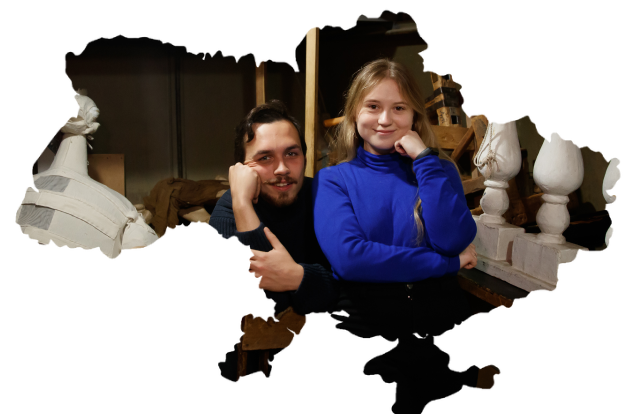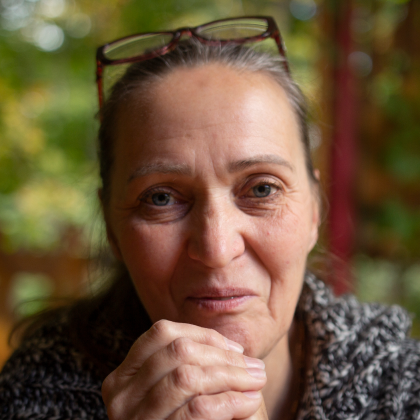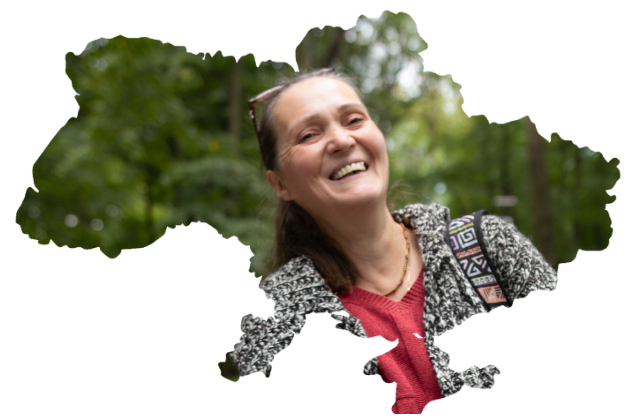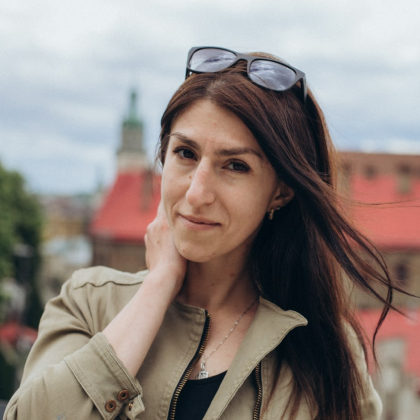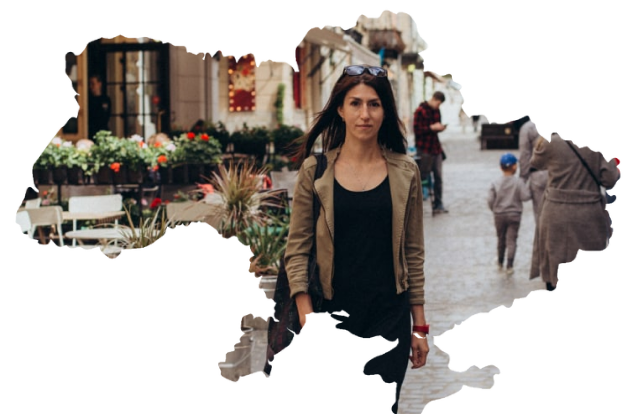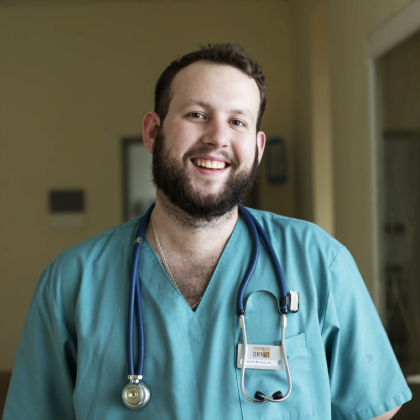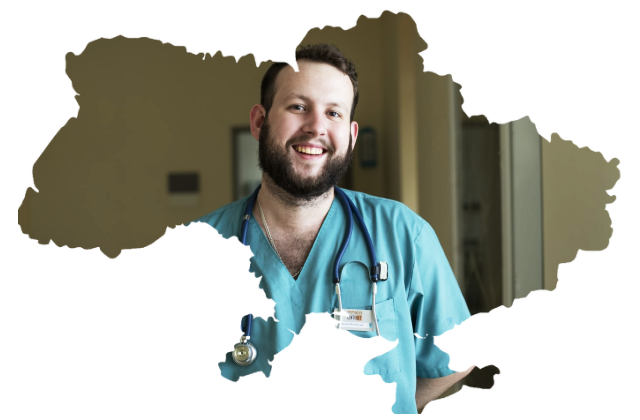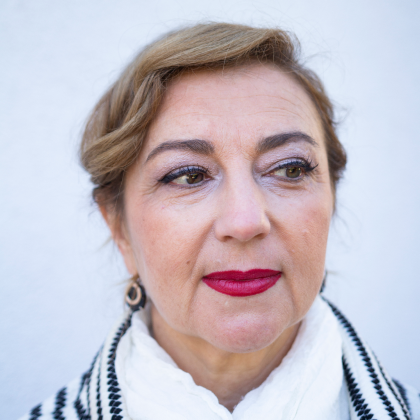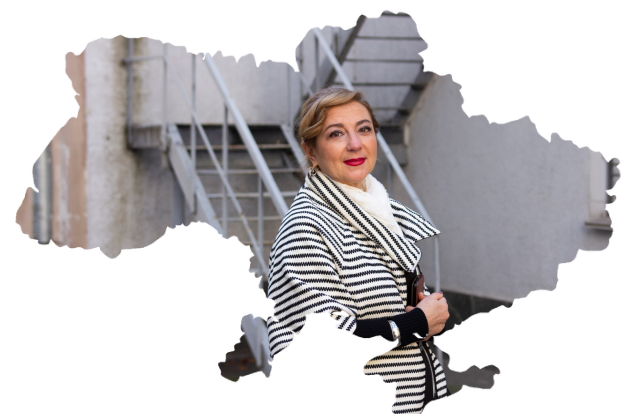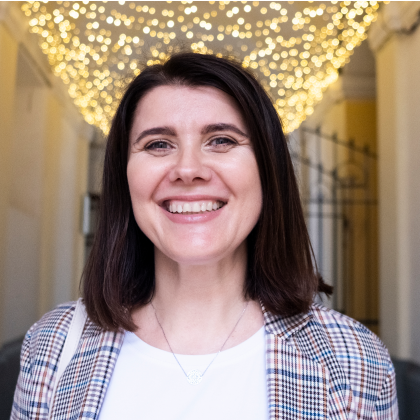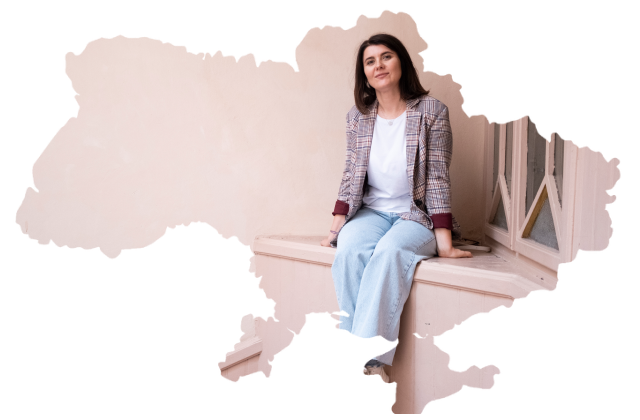Olga Tishevska
Psychotherapist
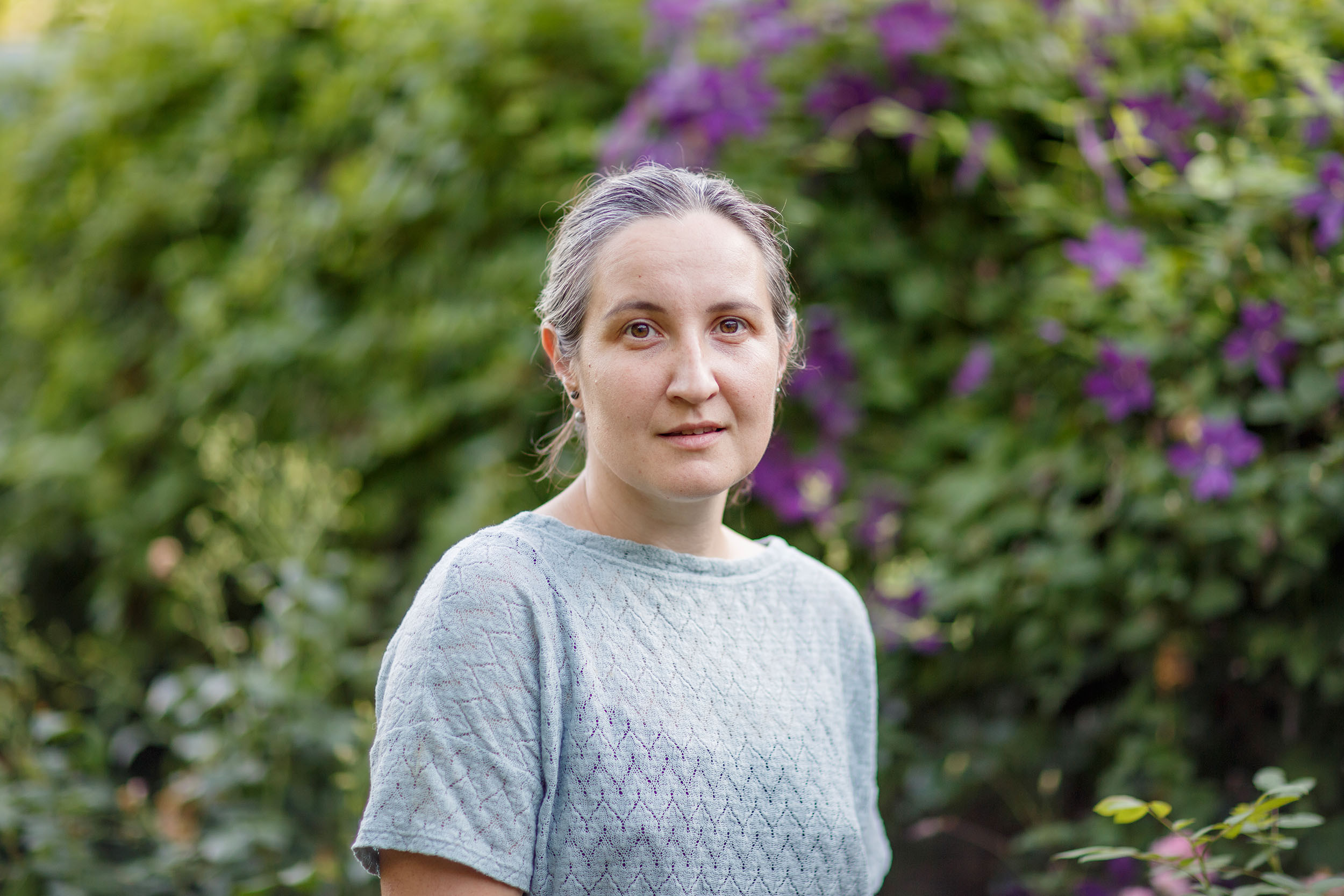
Donetsk — Kniazhychi — Trebukhiv
I was born in Donetsk and lived there until 2015. Right before the war, which for us began in 2014, I had just finished my training program and started forming my psychotherapy practice. My kids were still
very young: my daughter was nine and my son was 12. So in the autumn of 2014, I had to put my career on hold so I could focus on getting the children out of their school that had become severely pro-Russian and transferring them to homeschooling.
I remember celebrating the New Year 2015 in occupied Donetsk when I listened to Okean Elzy at low volume and took secret selfies against the backdrop of the Ukrainian flag that I had sewn with my own hands. All that was very important for us, even though none of my relatives have Ukrainian roots and my husband is half-Russian. But it is not a question of origin, it is about identity, and we certainly identified as Ukrainians just as we do today.
Shortly after the occupation began, they introduced permits to leave the Donetsk Oblast, which were very hard to get. However, until we managed to evacuate our family, we helped our relatives who had already left Donetsk: we mailed them their stuff, found what they needed in their homes, and joked that we remained in charge of the city, other people's homes, and shipping.
Finally, on 20 July 2015, we left. I remember it well because our daughter was turning 10 the next day, and at midnight we sang "Happy Birthday" to her the moment we had just left the occupied territories for free Ukraine.
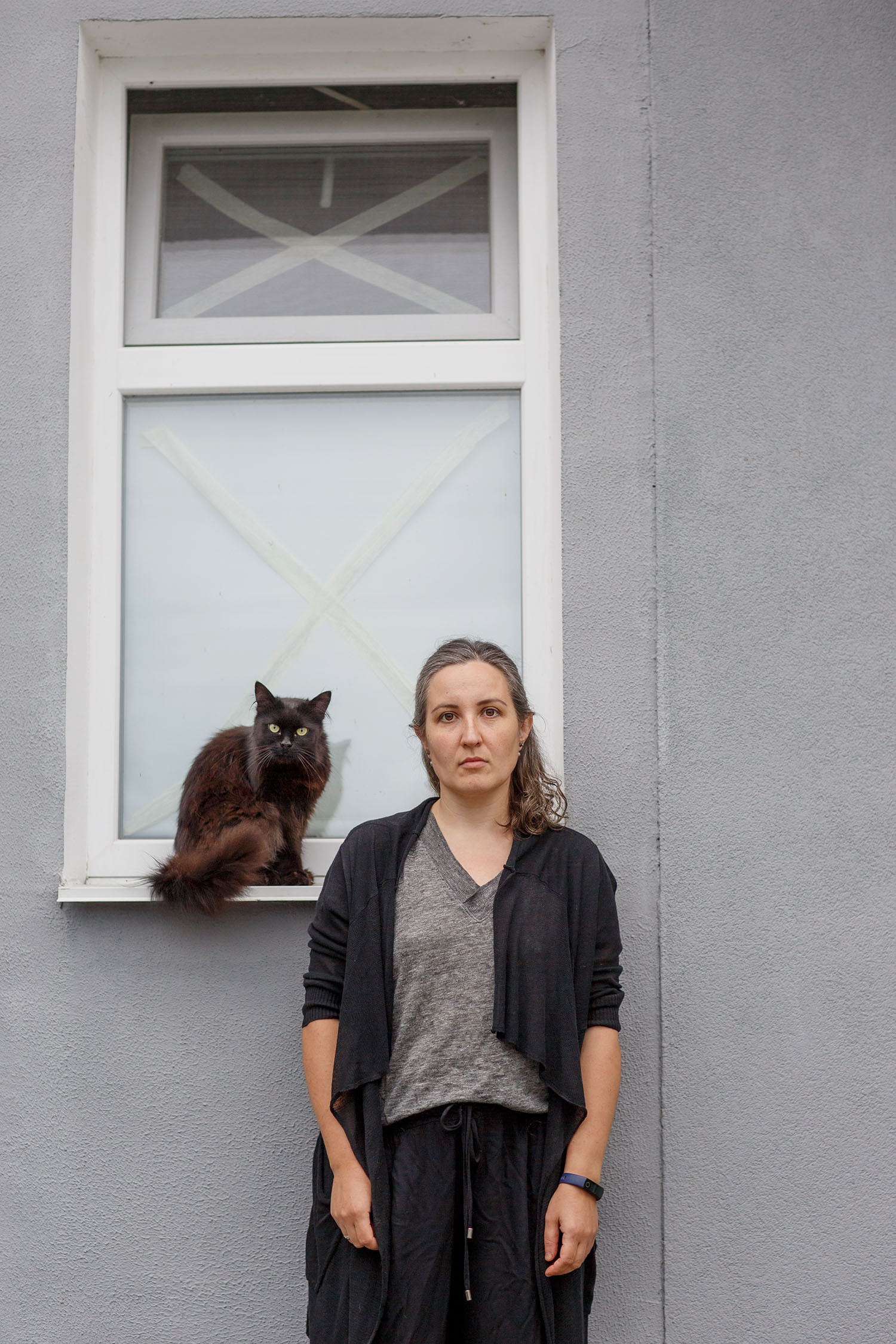
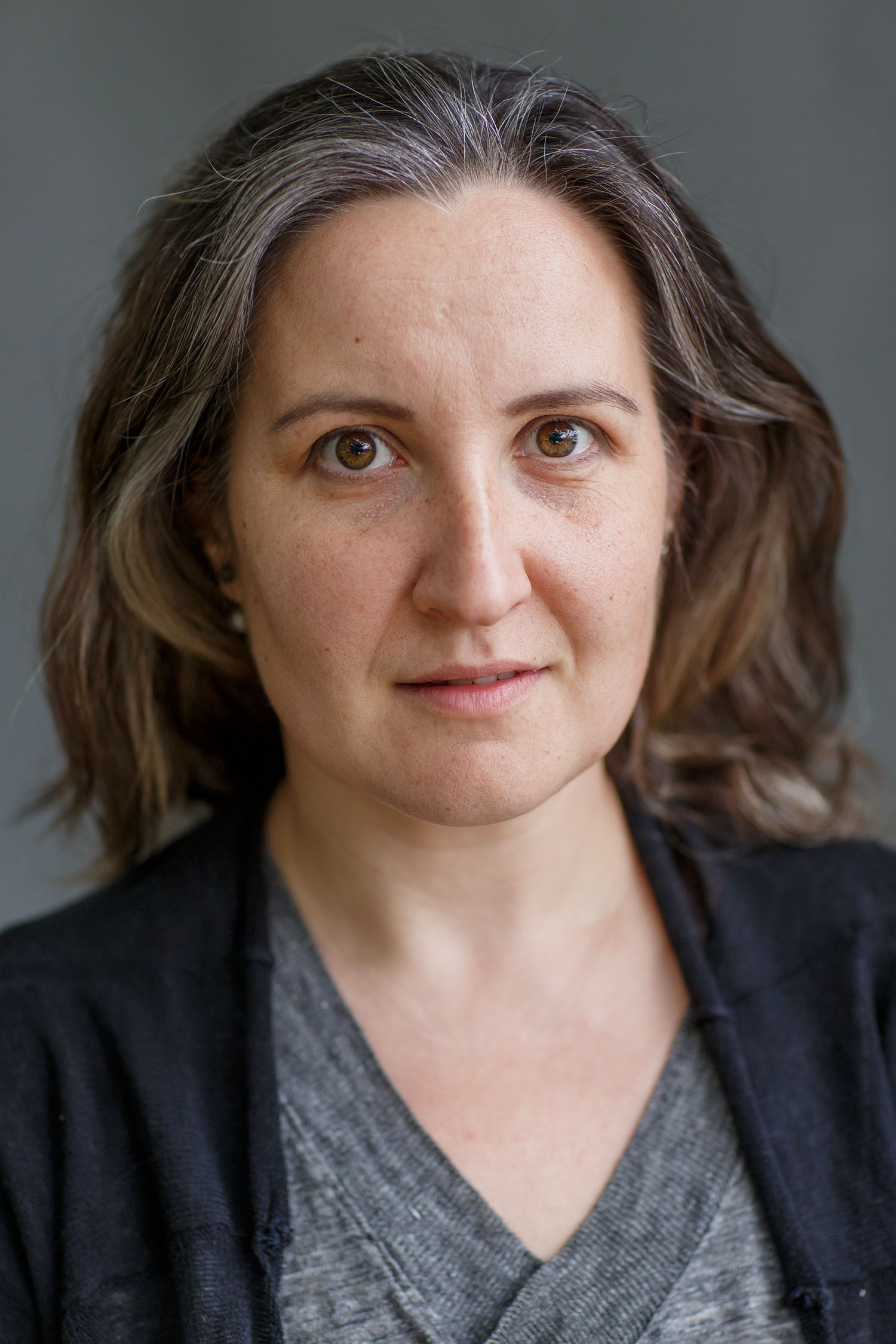
At first, an acquaintance of ours offered us to stay for two days in their dacha in the west of the Kyiv Oblast. It was a plywood house with no amenities, but we found it a beautiful, secure, and peaceful place. I remember that overwhelming feeling I had when I left the occupied territory: it felt as if I had been released from captivity. It was because we had all been slowly fading away: we had got very thin and somewhat frozen. I understand very well what people living under occupation are going through. It is an extremely stressful experience, that no one should have to go through.
The Kyiv rent was not something we could afford. Besides, being a refugee from Donetsk, with kids and pets, you didn't hope for luck in the capital in 2014-2015. We consciously looked for a house in the Kyiv Oblast. Finally, we found one in Kniazhychi, a village not far from the town of Brovary.
It soon became clear that renting a home wasn't our thing, so we started looking for a house of our own. My parents offered their support because they had managed to sell the apartment in Donetsk, which was still possible at the time, even though it was for next to nothing. We found a house for ourselves in the neighbouring village of Trebukhiv (the Brovary district of the Kyiv region): semi-detached, with no water, minimal electricity, and unrepaired. But when we walked into the yard, something clicked in both of our hearts.
We began to renovate everything in the old house ourselves because we don't like to hire workers and honestly believe that a person with a brain and the Internet is capable of anything. We connected heating and water and fixed up the place ourselves. There's still a lot of work to do, but that's what gives your home its value. We have invested so much here, how can we leave it?
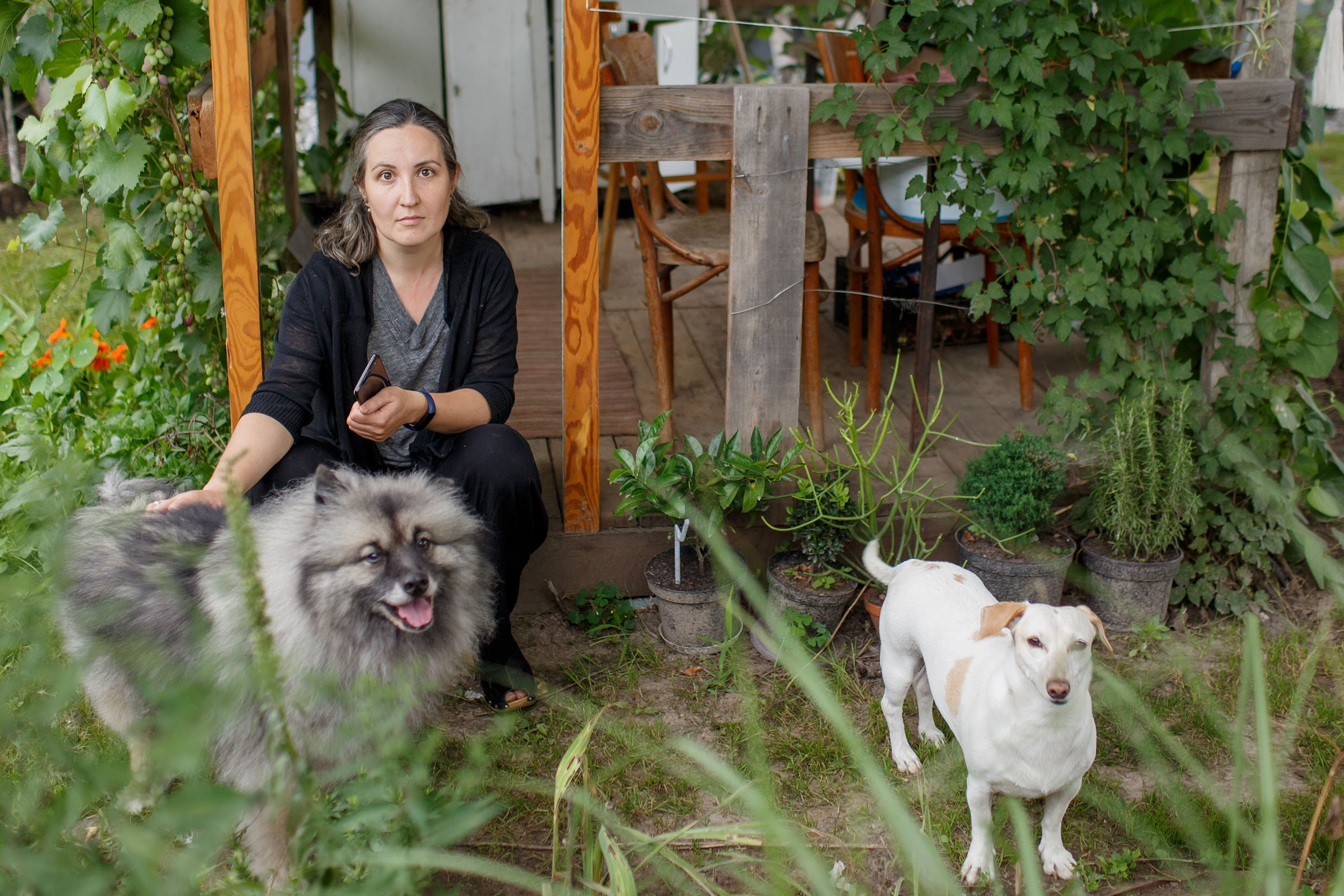
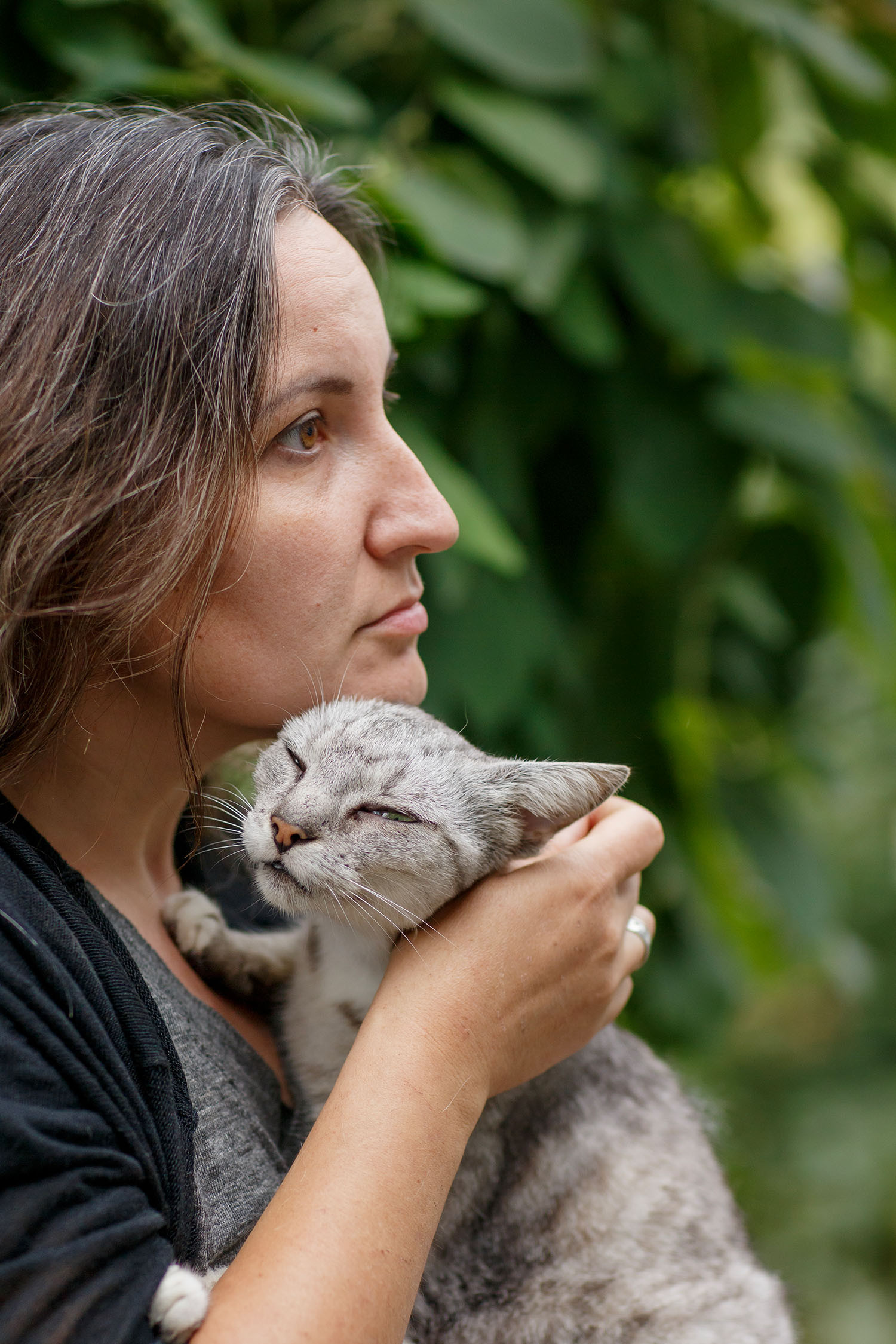
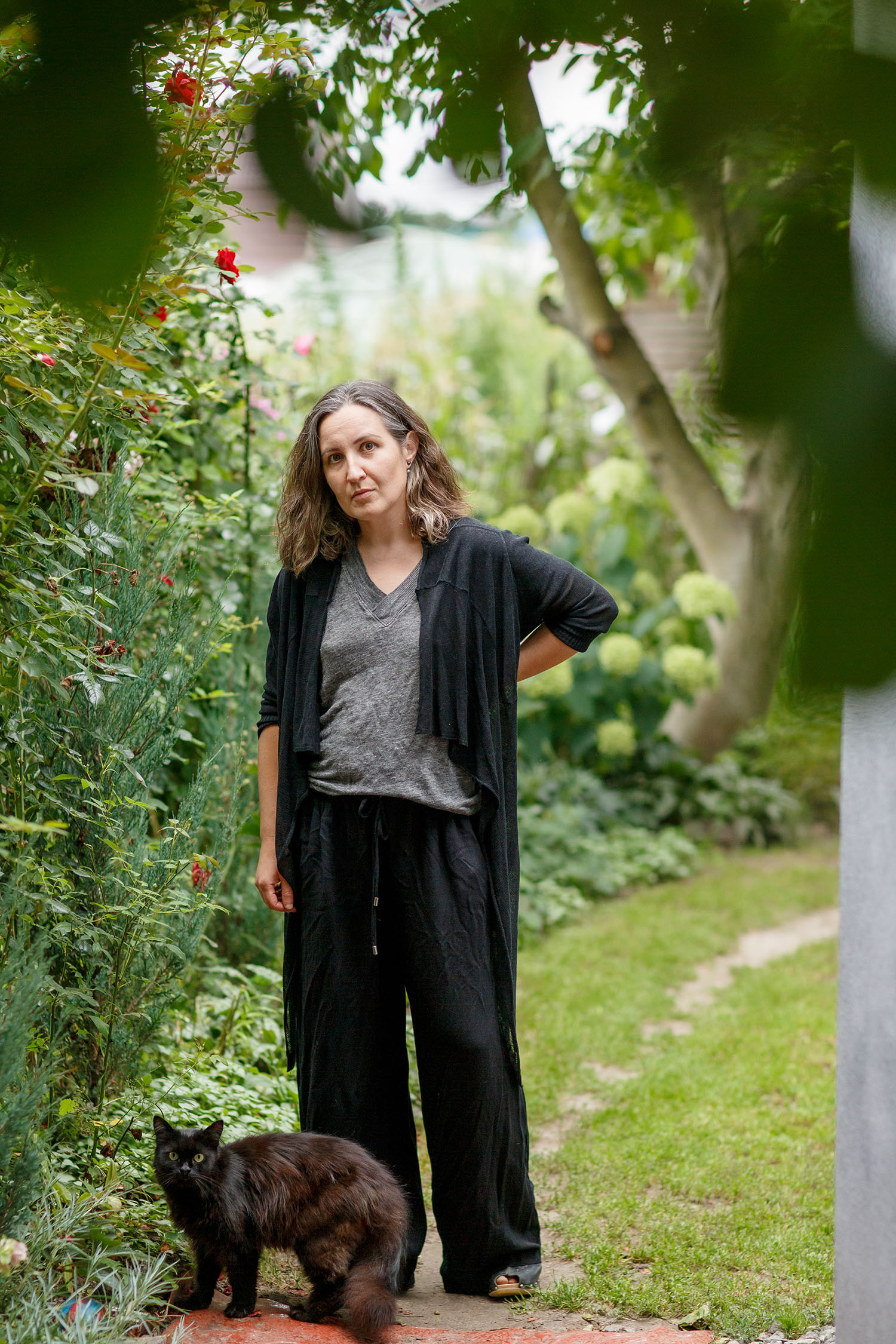
This year, on February 22, my friends and I watched Putin's speech in which he recognized the DPR and LPR as independent states. Someone said: "That's it, this is war because that' s exactly what happened to Abkhazia on the eve of Russia's war with Georgia." But I really didn't want to believe it. I have this trait: I do not go deep into details in advance, but deal with the consequences. So we lived our quiet life without packing any go-bags because "time will tell."
On February 24th at 5 a.m. we woke up to explosions because the Boryspil airport is nearby. Missiles flew there; they also flew to Brovary, and to a military unit. We immediately woke up the kids, but this time, compared to 2014, besides the fear, we felt something completely new: a lot of rage and adrenaline. A friend from Donetsk, who had earlier settled in the same village, called to suggest that we join his wife and daughter and go somewhere deep into the country, while he joined the AFU to fight. My husband went to help the Territorial Defence Forces.
I was in a state of shock, giving in to the general wave of adrenaline. It soon became clear that probably we were not leaving the house at that point. Some said it was too risky to leave the village, others said the opposite. We decided that we would leave if it got more dangerous there.
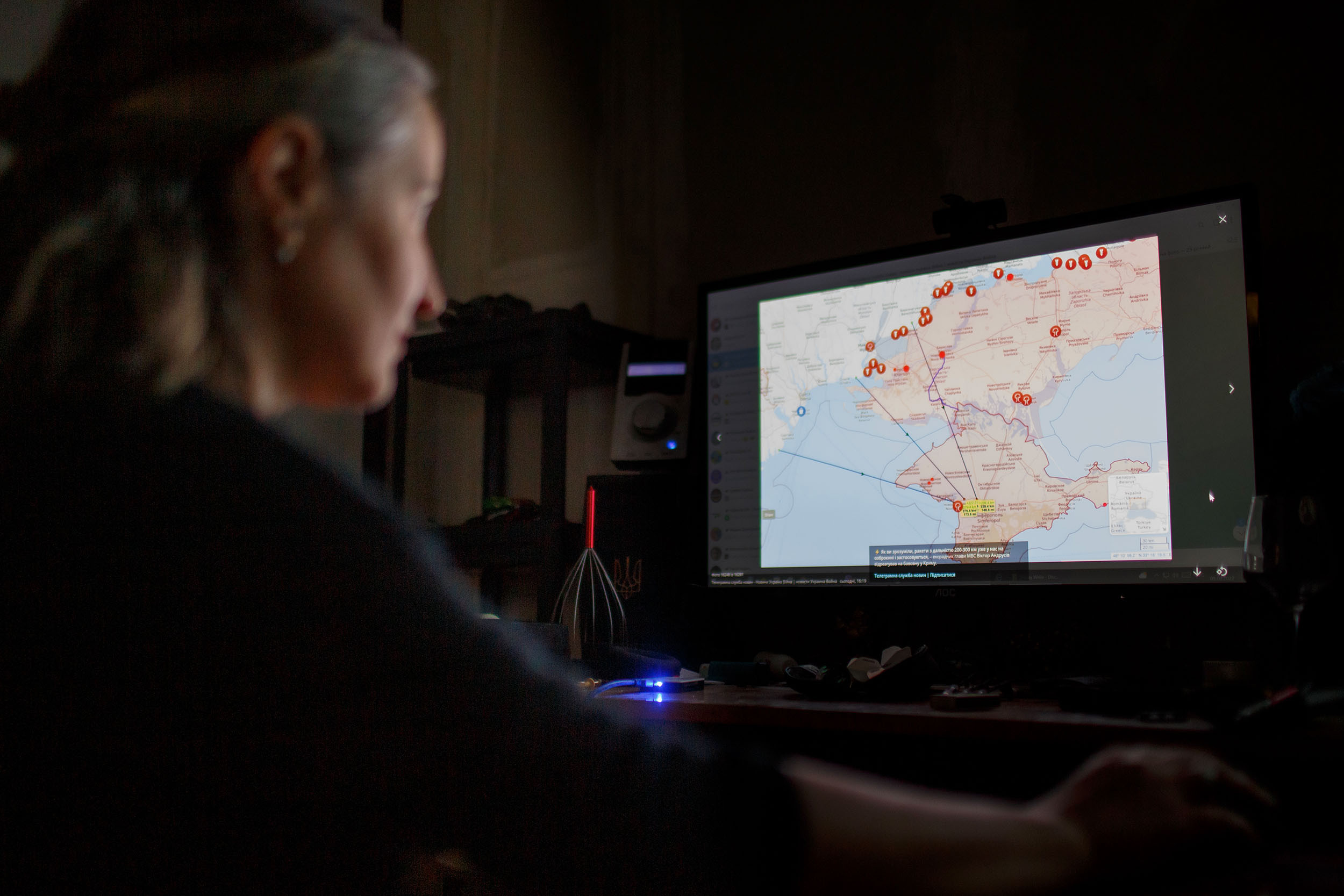
Still, life was very difficult till April, when the Russians finally withdrew from the Kyiv Oblast. That was a real emotional rollercoaster: we leave - we stay, we leave - we stay. We covered our windows with mattresses because we don't have a basement. We analyzed the construction of our house and the material it was made of, watched videos of how houses burnt down in the Kyiv region and realized that nothing would be left of our house if the fire got to it.
But somewhere in the middle of March, it became crystal clear to me that life goes on. It happened as I saw through the window our neighbours covering their greenhouse with plastic film, for it was time to plant the vegetable garden. The artillery is rattling, and the invaders are approaching, but you don't make the soil wait.
Over the years of living in our house, the garden has become a very important resource for me. I had recovered from depression through the soil and gardening. It proved to be very therapeutic: you plant something and it grows. And then it blooms, bears fruit, and feeds you. This love of the land connects me to the previous generations of Ukrainians and my family. My great-grandparents were dispossessed of their own land in Belarus and exiled to a camp in northern Russia.
My grandmother was convicted and had a sentence before she was even born. But the family survived and managed to save the children, albeit not on their own land.
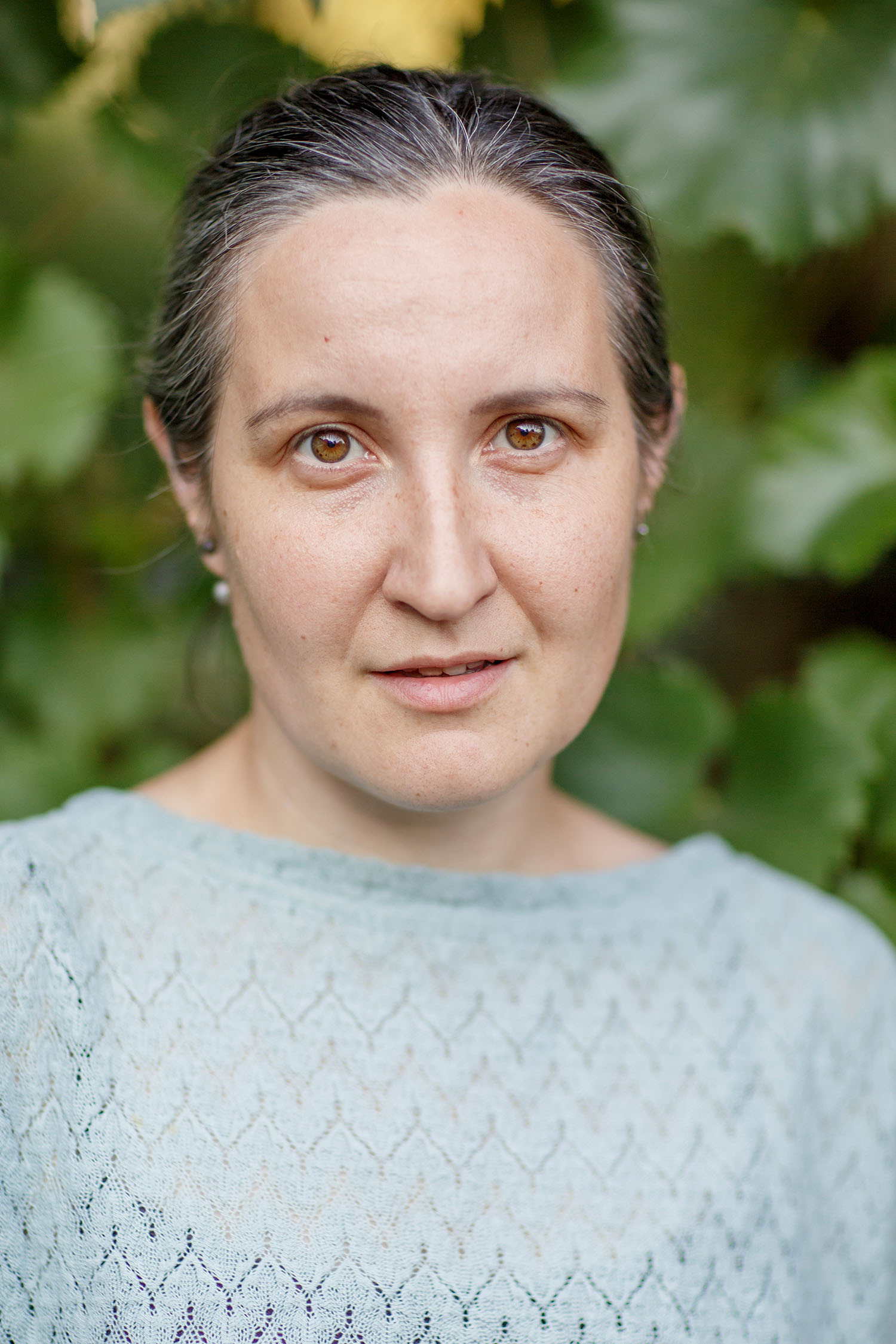
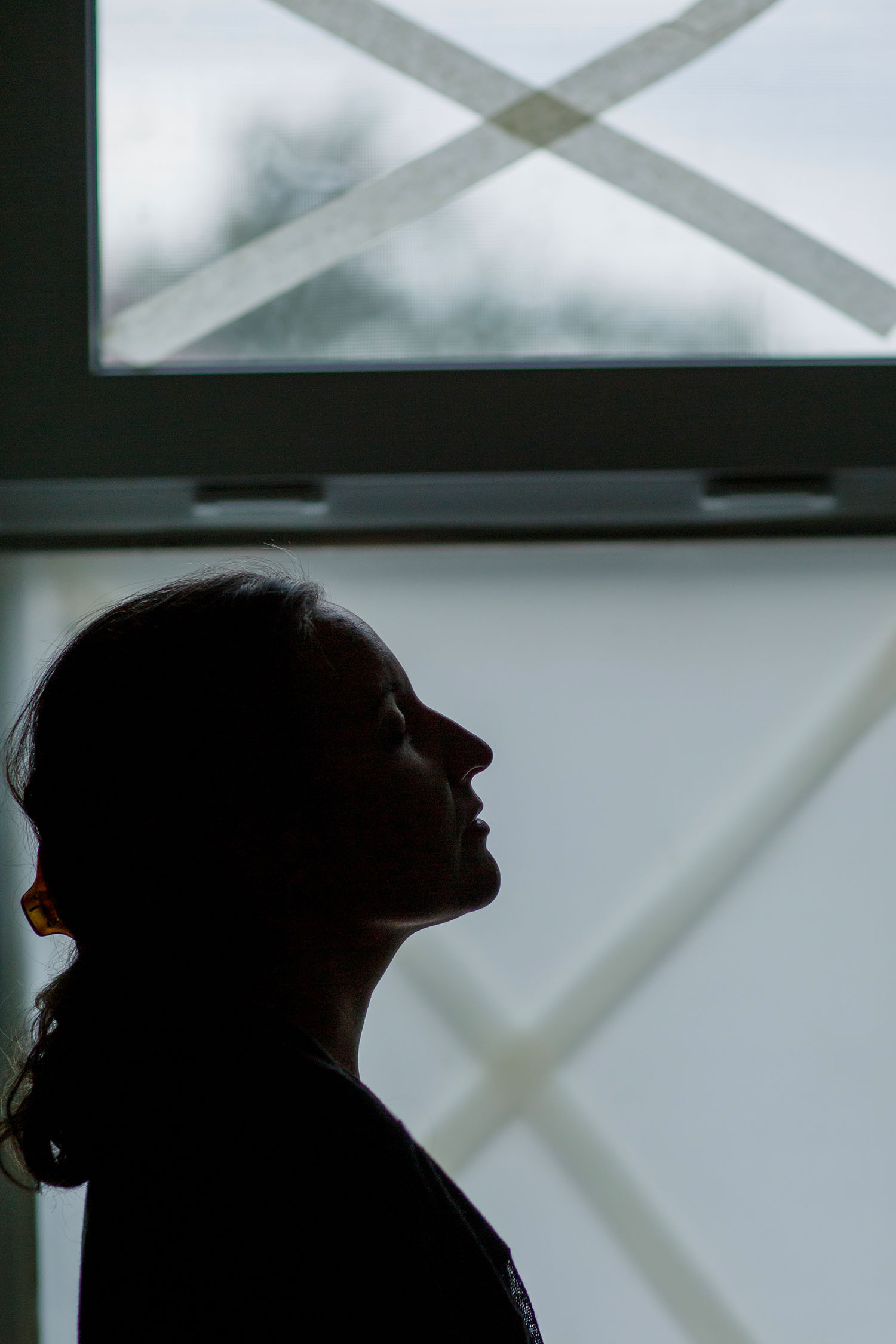
Recently my husband was going through his hard drive and we went through pictures of the 2013 summer in Crimea. Back then we were so naive, so bright, believing nothing would happen. That's certainly what we'd got rid of: now we know that bad things do happen. I am hardly surprised by the crimes that come to light in the territories liberated from the Russian occupation. I do not close my eyes to the evil that happens.
However, now we are loud, and we are many. And even though the same happened in Donetsk, the fatal event of August 2014, the Ilovaisk cauldron, showed that our country didn't have the kind of support back then that it has today.
Now I feel that the victory is ours, but I didn't feel that back in Donetsk. We finally found a home in the Kyiv region and we definitely don't want to start life all over again this time. This is my land, why the fuck should I go? We will survive and we will not give up what is ours.
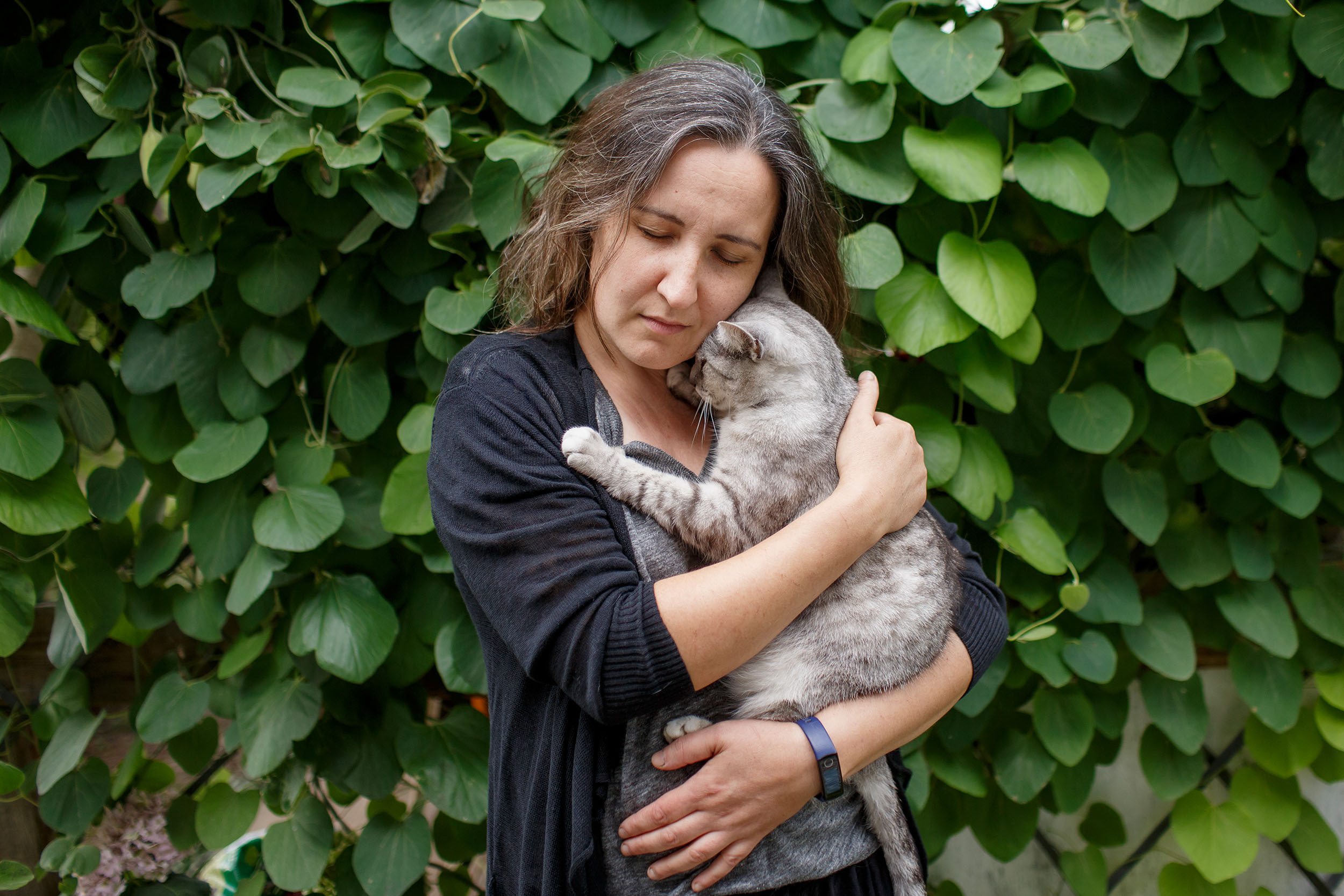
Recorded by Alyona Vorobiova
Translated by Volha Mikhnovich
Photographed by Oleksiy Tishevskiy
